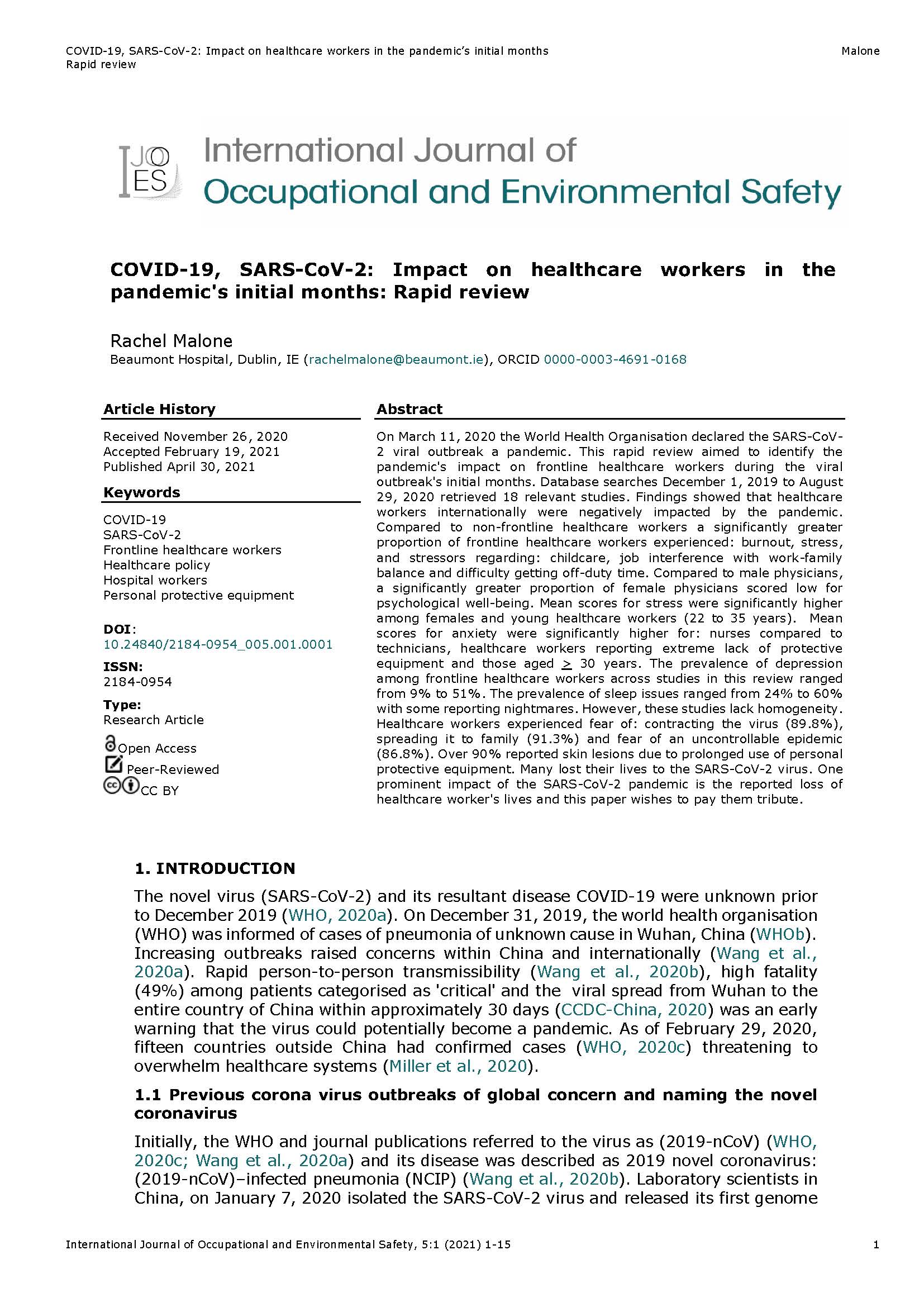COVID-19, SARS-CoV-2: Impact on healthcare workers in the pandemic’s initial months: Rapid review (Review)
Main Article Content
Abstract
On March 11, 2020 the World Health Organisation declared the SARS-CoV-2 viral outbreak a pandemic. This rapid review aimed to identify the pandemic's impact on frontline healthcare workers during the viral outbreak's initial months. Database searches December 1, 2019 to August 29, 2020 retrieved 18 relevant studies. Findings showed that healthcare workers internationally were negatively impacted by the pandemic. Compared to non-frontline healthcare workers a significantly greater proportion of frontline healthcare workers experienced: burnout, stress, and stressors regarding: childcare, job interference with work-family balance and difficulty getting off-duty time. Compared to male physicians, a significantly greater proportion of female physicians scored low for psychological well-being. Mean scores for stress were significantly higher among females and young healthcare workers (22 to 35 years). Mean scores for anxiety were significantly higher for: nurses compared to technicians, healthcare workers reporting extreme lack of protective equipment and those aged > 30 years. The prevalence of depression among frontline healthcare workers across studies in this review ranged from 9% to 51%. The prevalence of sleep issues ranged from 24% to 60% with some reporting nightmares. However, these studies lack homogeneity. Healthcare workers experienced fear of: contracting the virus (89.8%), spreading it to family (91.3%) and fear of an uncontrollable epidemic (86.8%). Over 90% reported skin lesions due to prolonged use of personal protective equipment. Many lost their lives to the SARS-CoV-2 virus. One prominent impact of the SARS-CoV-2 pandemic is the reported loss of healthcare worker's lives and this paper wishes to pay them tribute.
Article Details

This work is licensed under a Creative Commons Attribution 4.0 International License.

